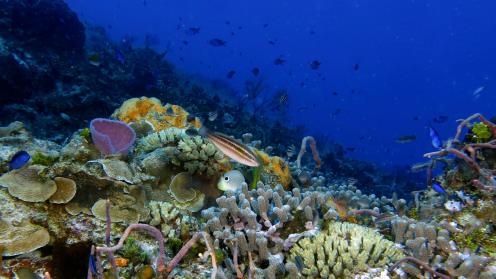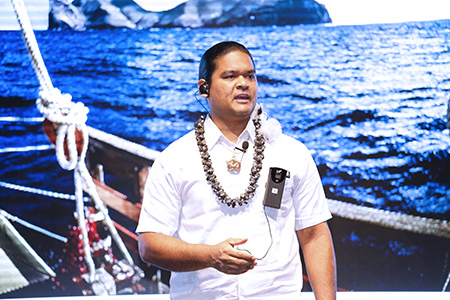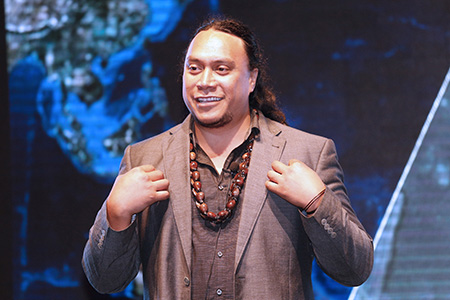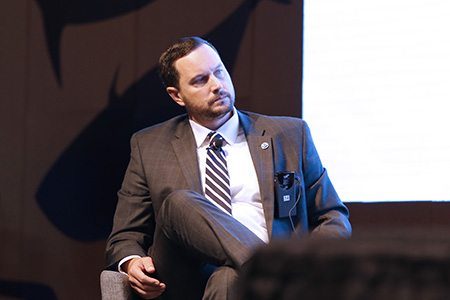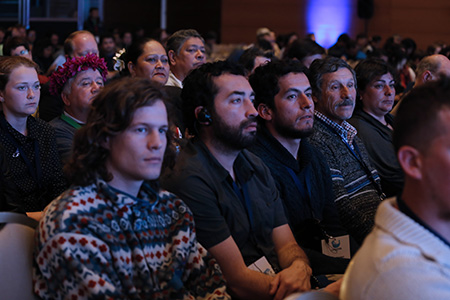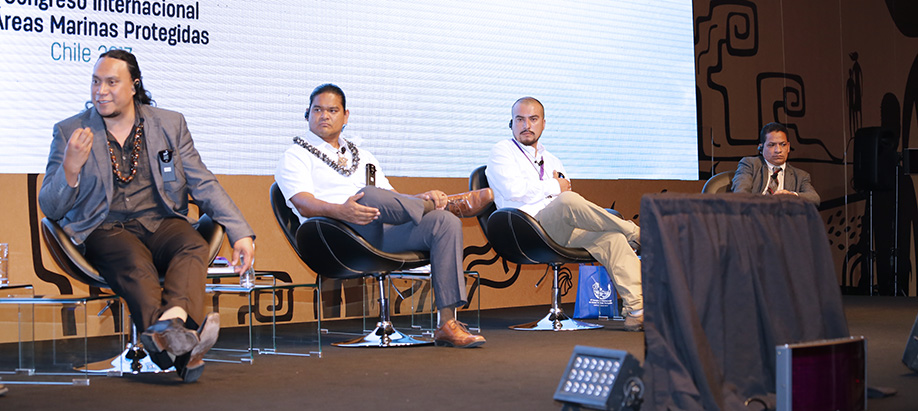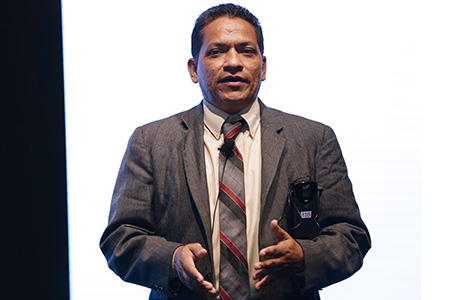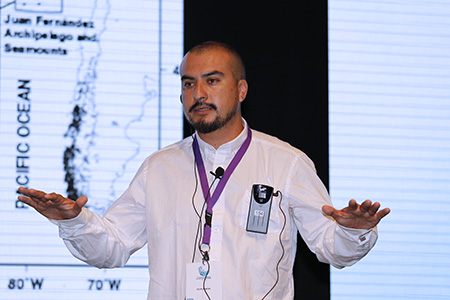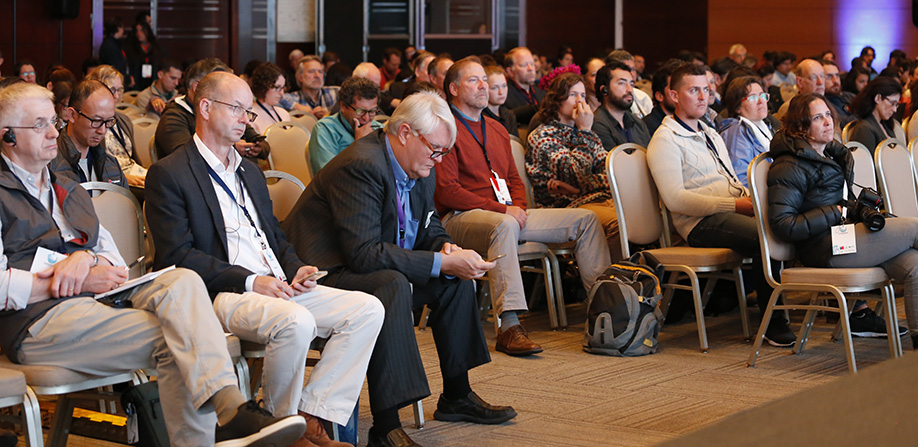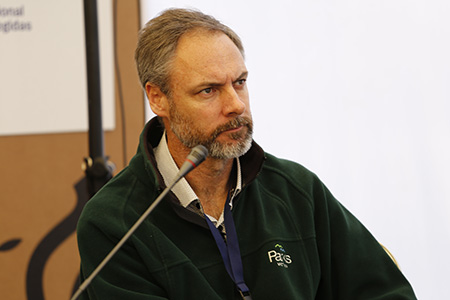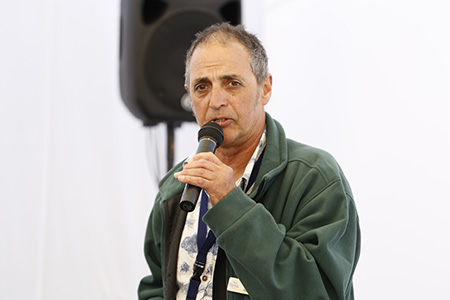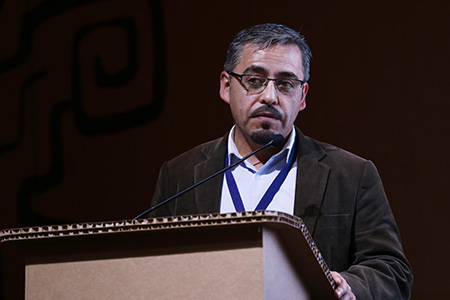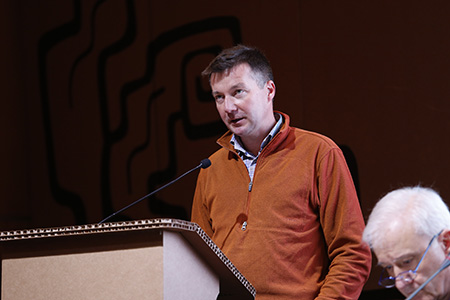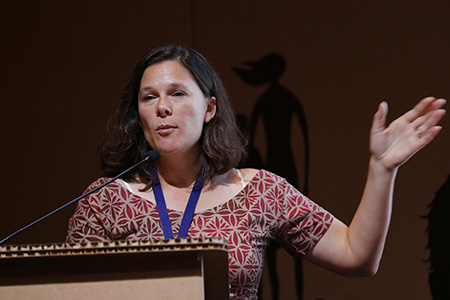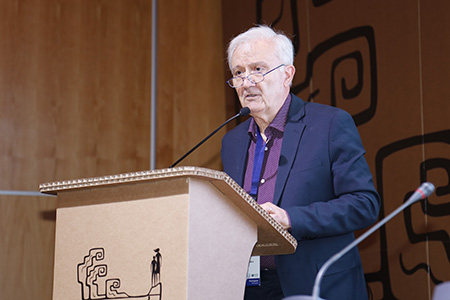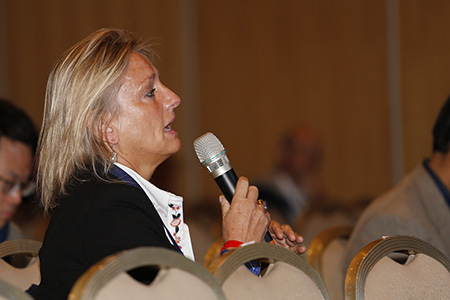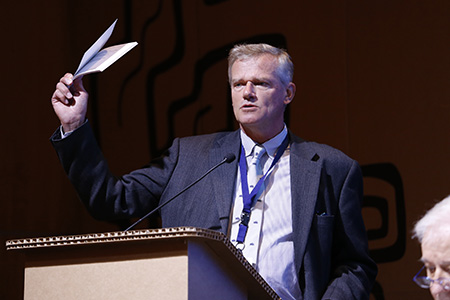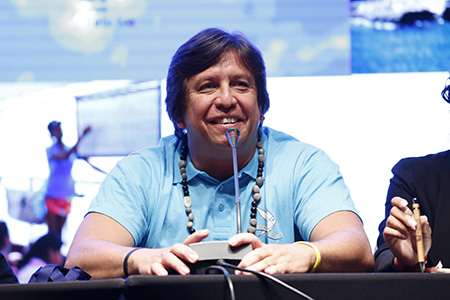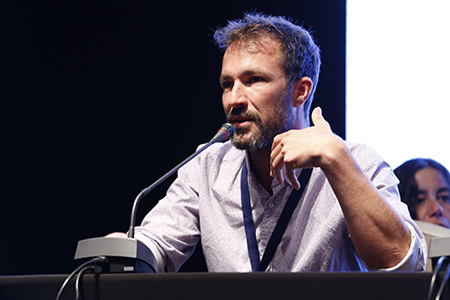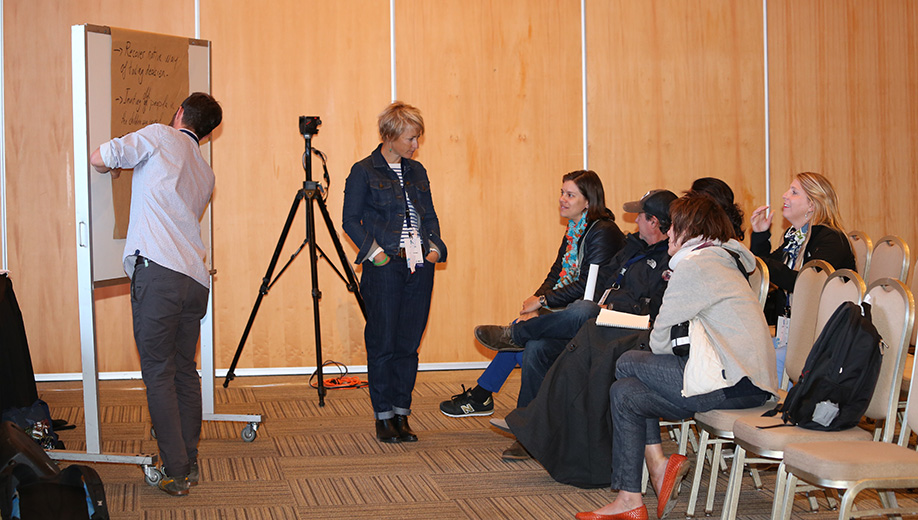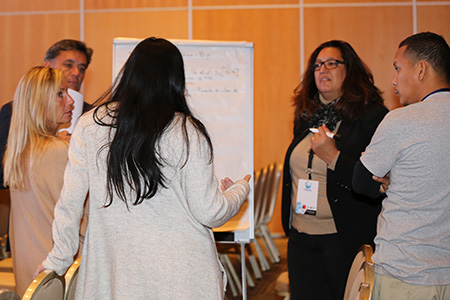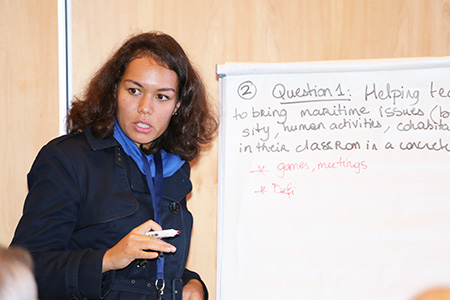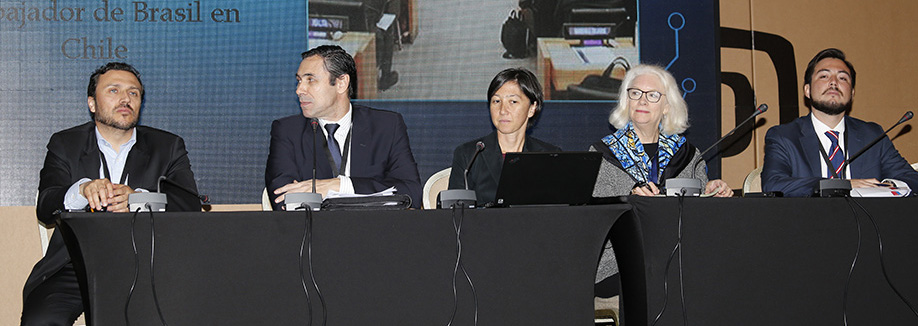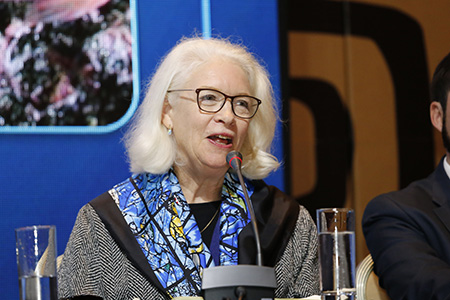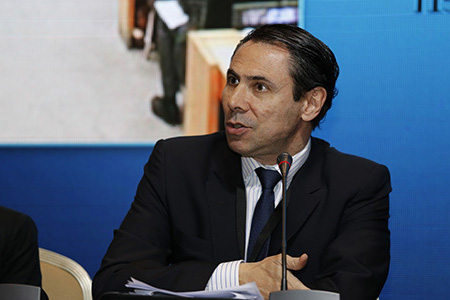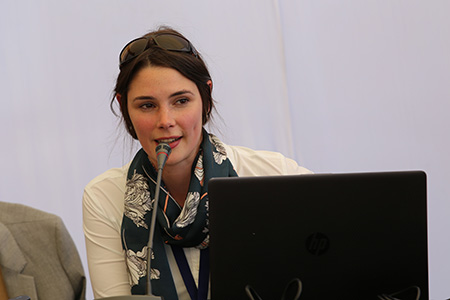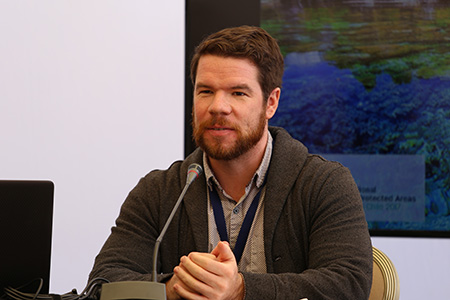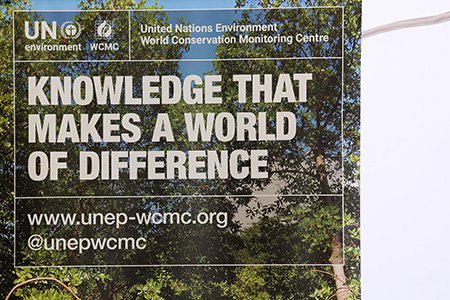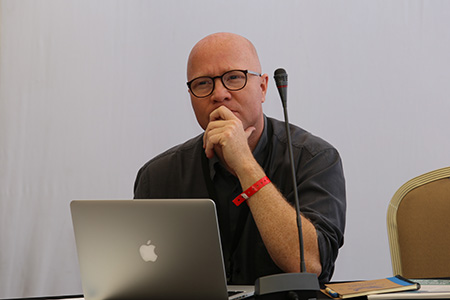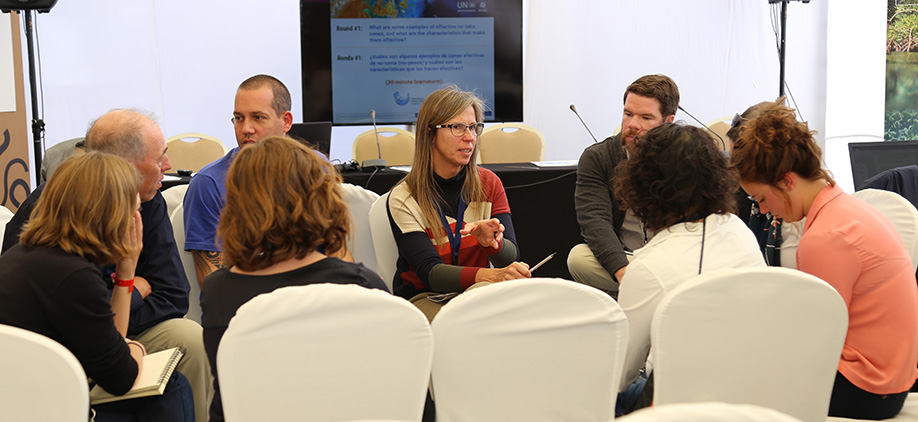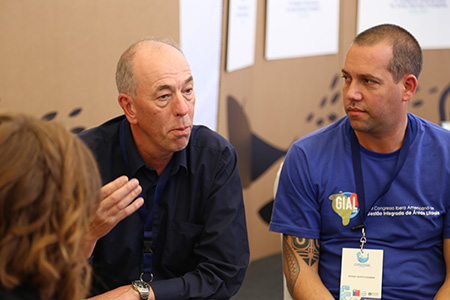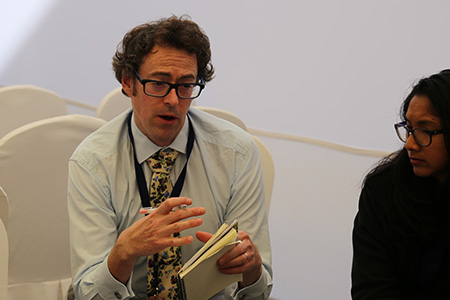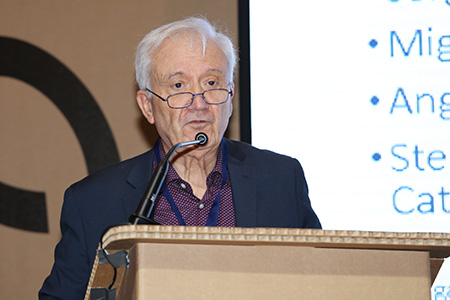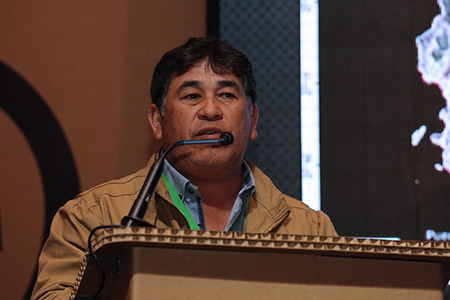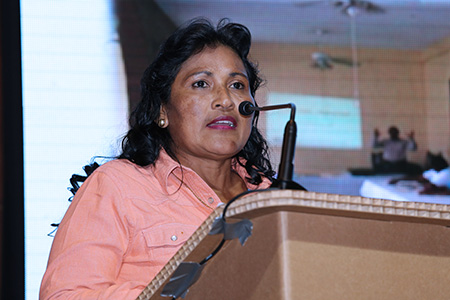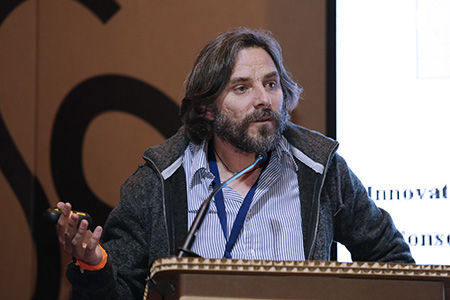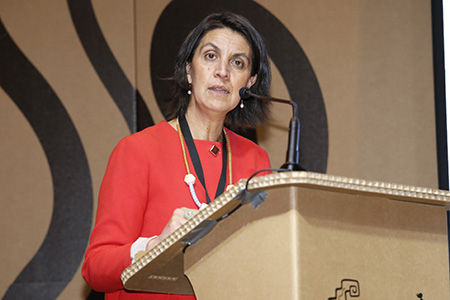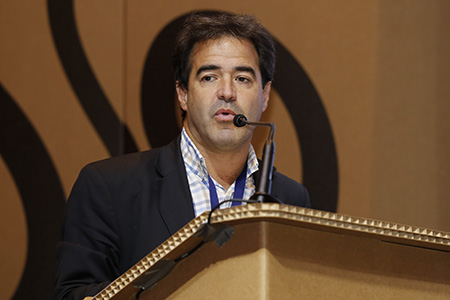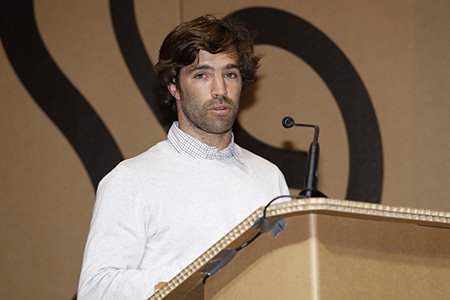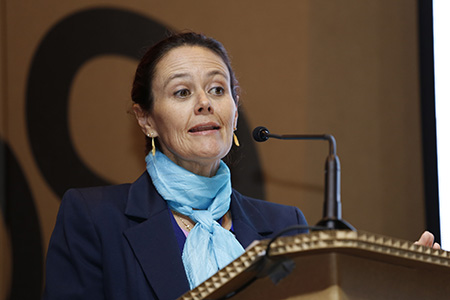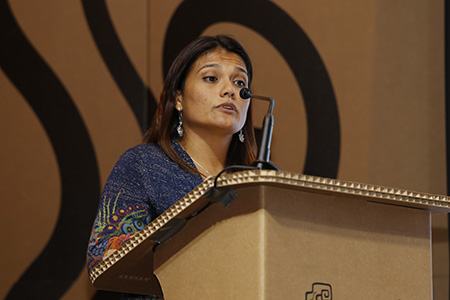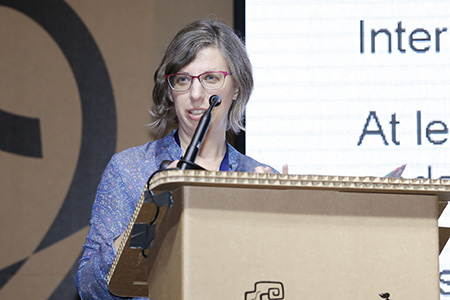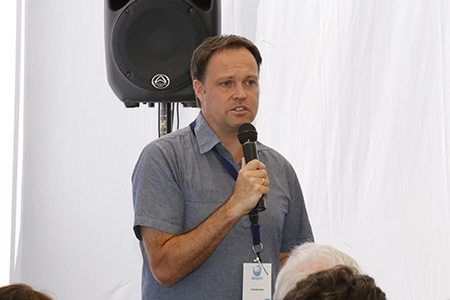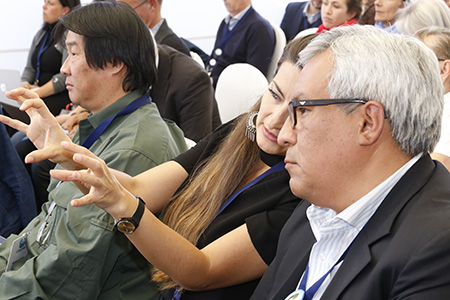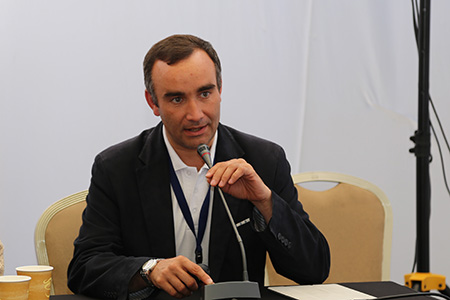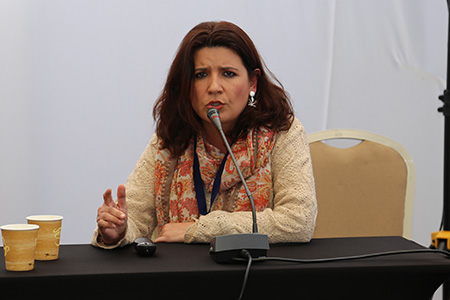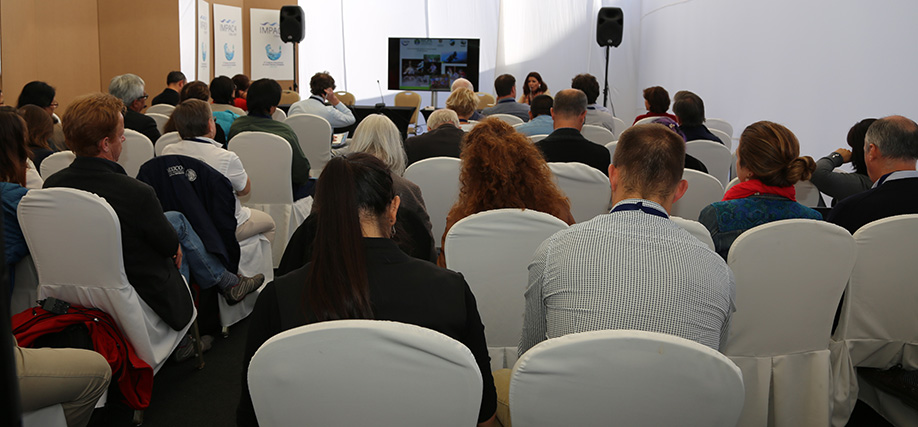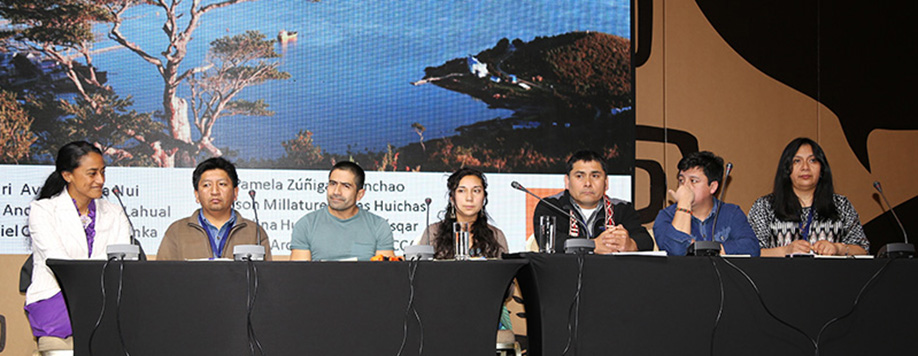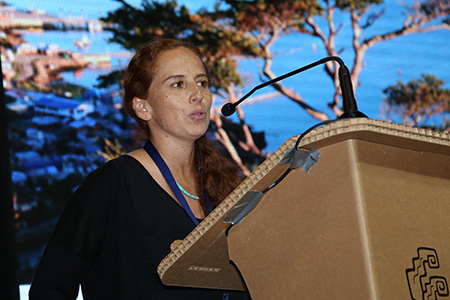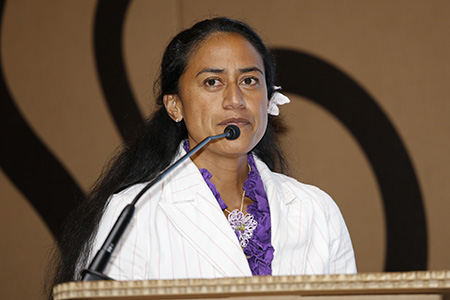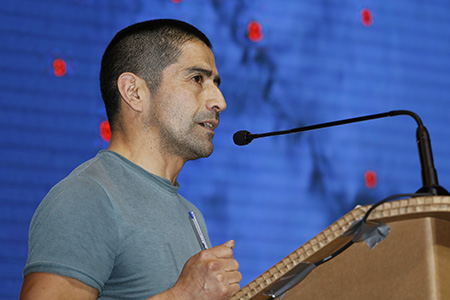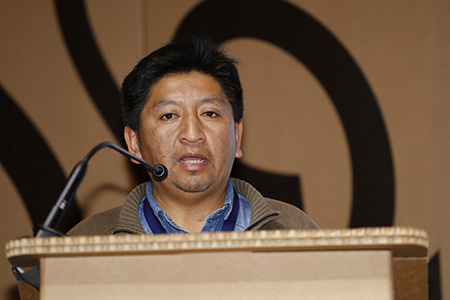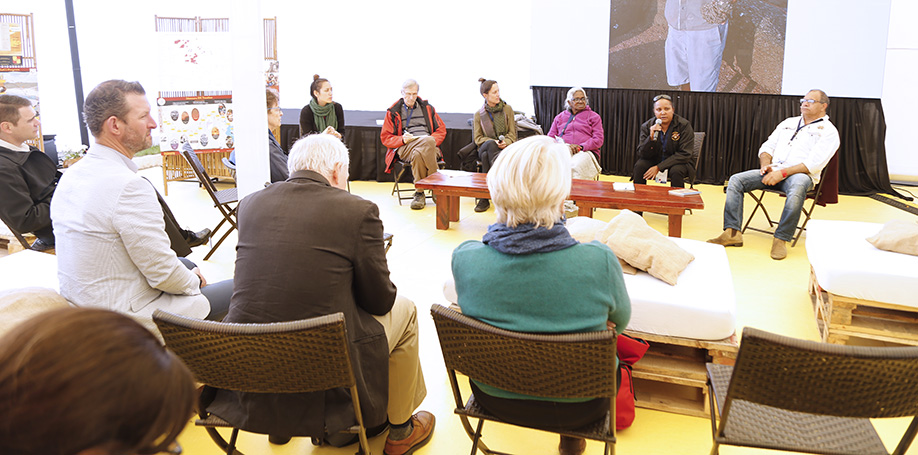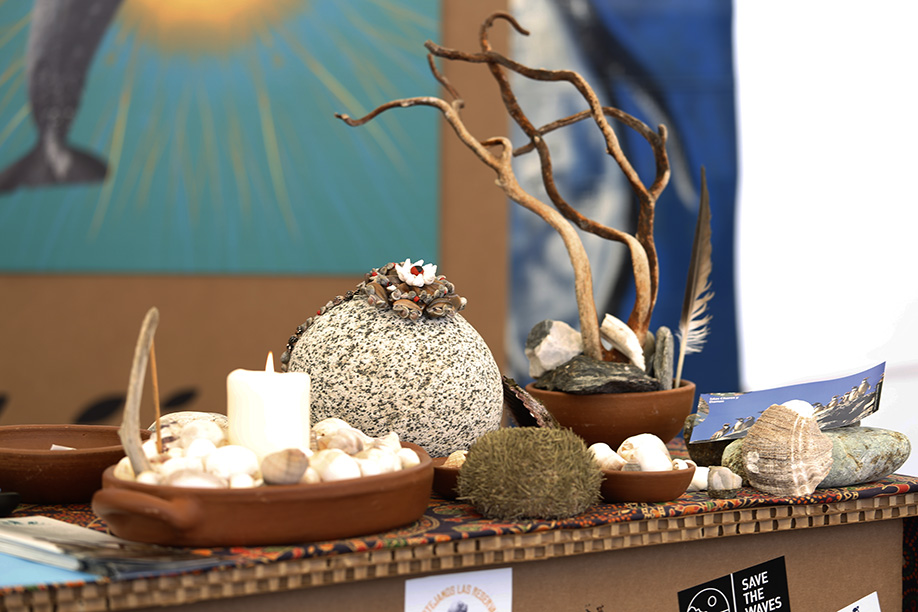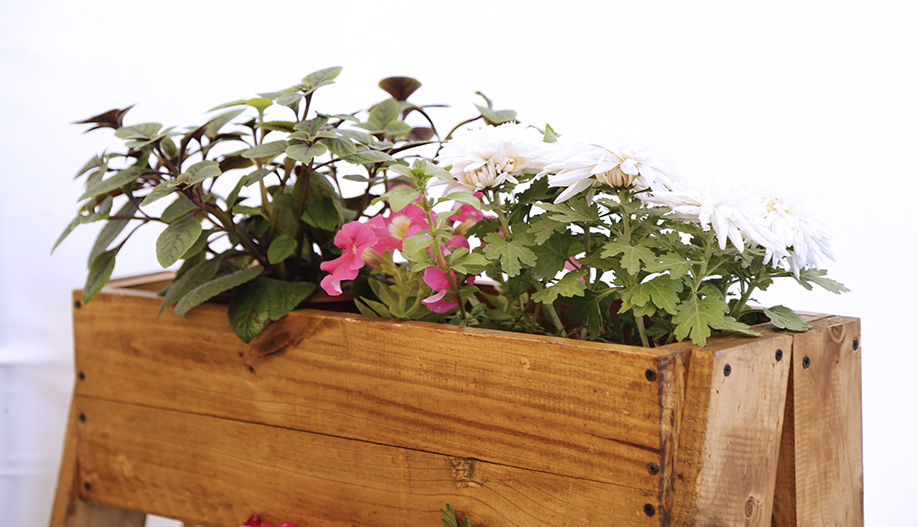Summary
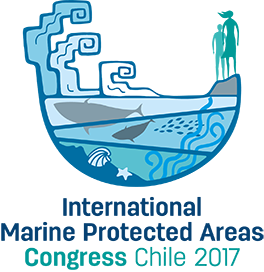
The second day of the fourth International Marine Protected Areas Congress (IMPAC4) convened in La Serena, Chile, on Wednesday, 6 September 2017 on the theme, ‘Marine Protected Areas (MPAs) and Coastal Communities.’ The day included a plenary session in the morning, and a number of symposia, workshops, oral presentations, and poster presentations taking place throughout the day. Speed talks and knowledge cafés occurred in the afternoon and evening.
The morning’s plenary session saw a panel discussion on the day’s theme, with participants underscoring the importance of community involvement in all aspects of MPA proclamation and management. Key highlights included underscoring the importance of recognizing heritage and culture when proclaiming and managing MPAs. Participants also stressed: development of marine reserves can be both a responsibility and a right as local communities are stewards of the land; MPAs can ensure the sustainability of artisanal fisher livelihoods; workshops with local communities to design and implement fish restoration zones have had positive results; and, using ancestral knowledge combined with modern technology and science can encourage progress and advancement of MPAs.
Highlights from the symposia included discussions on: civil society networking for marine conservation in the Southern Cone; MPAs and food security; and, protecting vulnerable marine ecosystems in the high seas from bottom fishing impacts.
Workshop highlights included discussions on citizen science for MPAs, and indigenous communities and MPAs. Some workshops also undertook exercises on issues including: enhancing South-South cooperation towards global MPA targets in South America and the Caribbean; methodologies, experiences and vision to improve the educational managed marine area tool box; and, improving the performance of Marine and Coastal Protected Areas through the IUCN Green List.
Photos by IISD/ENB | Ángeles Estrada Vigil
Opening plenary session
Kalani Quiocho, NOAA
Poki Tane Haoa, Government of Rapa Nui, Chile
John Armor, NOAA
Participants during plenary
(L-R): Poki Tane Haoa, Government of Rapa Nui, Chile, Kalani Quiocho, US National Oceanic and Atmospheric Administration (NOAA), Felipe Paredes, Juan Fernández Archipelago, Chile, and Gustavo Cabrera, Fundacion Cuerpos de Conservacion Omoa (CCO), Omoa, Honduras
Gustavo Cabrera, CCO, Omoa, Honduras
Felipe Paredes, Juan Fernández Archipelago, Chile
Citizen science for MPAs
Steffan Howe, Parks Victoria
Mark Rodrigue, Parks Victoria, Australia
Protecting Vulnerable Marine Ecosystems (VMEs) in the high seas from bottom fishing impacts
Mauricio Gálvez, Instituto de Fomento Pesquero (IFOP)
Michel Kaiser, IUCN Fisheries Expert Group (IUCN-FEG)
Jessica Sanders, Food and Agriculture Organization of the UN (FAO)
Serge Garcia, IUCN-FEG
Participant interventions
Tony Thompson, FAO
(L-R): Michel Kaiser, IUCN-FEG, Joseph Appiott, CBD, Mauricio Gálvez, IFOP, Jessica Sanders, FAO, and Tony Thompson, FAO
Sharing our methodologies, experiences and vision to improve the educational managed marine area tool box
Roland Sanquer, Department of Education, French Polynesia
François Morisseau, French Biodiversity Agency
Participants during the workshop
Towards a new international instrument to regulate the conservation and sustainable use of marine biodiversity in areas beyond the jurisdiction of states (BBNJ)
(L-R): Cristóbal Hernández Castillo, Ministry of Foreign Affairs, Chile, Carlos Duarte, Brazilian Ambassador to Chile and BBNJ PrepCom Chair, Liz Karan, Pew Charitable Trusts, Kristina Gjerde, Policy Advisor to the High Seas Alliance, and Cristian Laborda Mora, IUCN
Kristina Gjerde, Policy Advisor to the High Seas Alliance
Carlos Duarte, Brazilian Ambassador to Chile and BBNJ PrepCom Chair
Enhancing South-South cooperation towards global MPA targets in South America and the Caribbean
Lauren Weatherdon, UNEP-World Conservation and Monitoring Center (WCMC)
Joseph Appiott, CBD
Ole Vestergaard, UN Environment
Participants during the workshop
Brian MacSharry, UNEP-WCMC
MPAs and food security
Serge Garcia, IUCN-FEG
Miguel Ávalos, National Confederation of Artisanal Fishermen of Chile (CONAPACH)
Angélica Méndez, Network of Fishermen, Guatemala
Stefan Gelcich, Pontificia Universidad Catolica de Chile
Civil society networking for marine conservation in the Southern Cone: lessons from collaborative working
Alejandra Figueroa Fernández, Ministry of the Environment, Chile
Emiliano Ezcurra, National Parks, Argentina
Joaquin Labougle, National Parks, Argentina
Maria José González, Mesoamerican Reef (MAR) Fund
Pamela Castillo, Asociación Costa Rica por Siempre
Alexandra Sapoznikow, MAR Fund
Improving the performance of Marine and Coastal Protected Areas through the IUCN Green List
James Hardcastle, IUCN Global Protected Areas Programme
Participants during the session
Thierry Lefebvre, IUCN France Committee on Côte Bleue Marine Park
Sandra Valenzuela, WWF-Colombia
A view of the room during the session
Indigenous communities and MPAs: Opportunities and challenges for marine conservation
(L-R): Uri Avaka, Rapa Nui, Javier Ancapán, Mapu Lahual, Jaime Huanquil, Mapu Lahual, Pamela Zúñiga, Quinchao, Daniel Caniullán, Pu Wapi, Nelson Millatureo, Islas Huichas, and Carolina Huenucoy, Kawésqar
Lorena Arce, Indigenous Peoples’ and Community Conserved Areas and Territories (ICCA) Consortium
Uri Avaka, Rapa Nui
Jaime Huanquil, Mapu Lahual
Javier Ancapán, Mapu Lahual
Around the Venue
